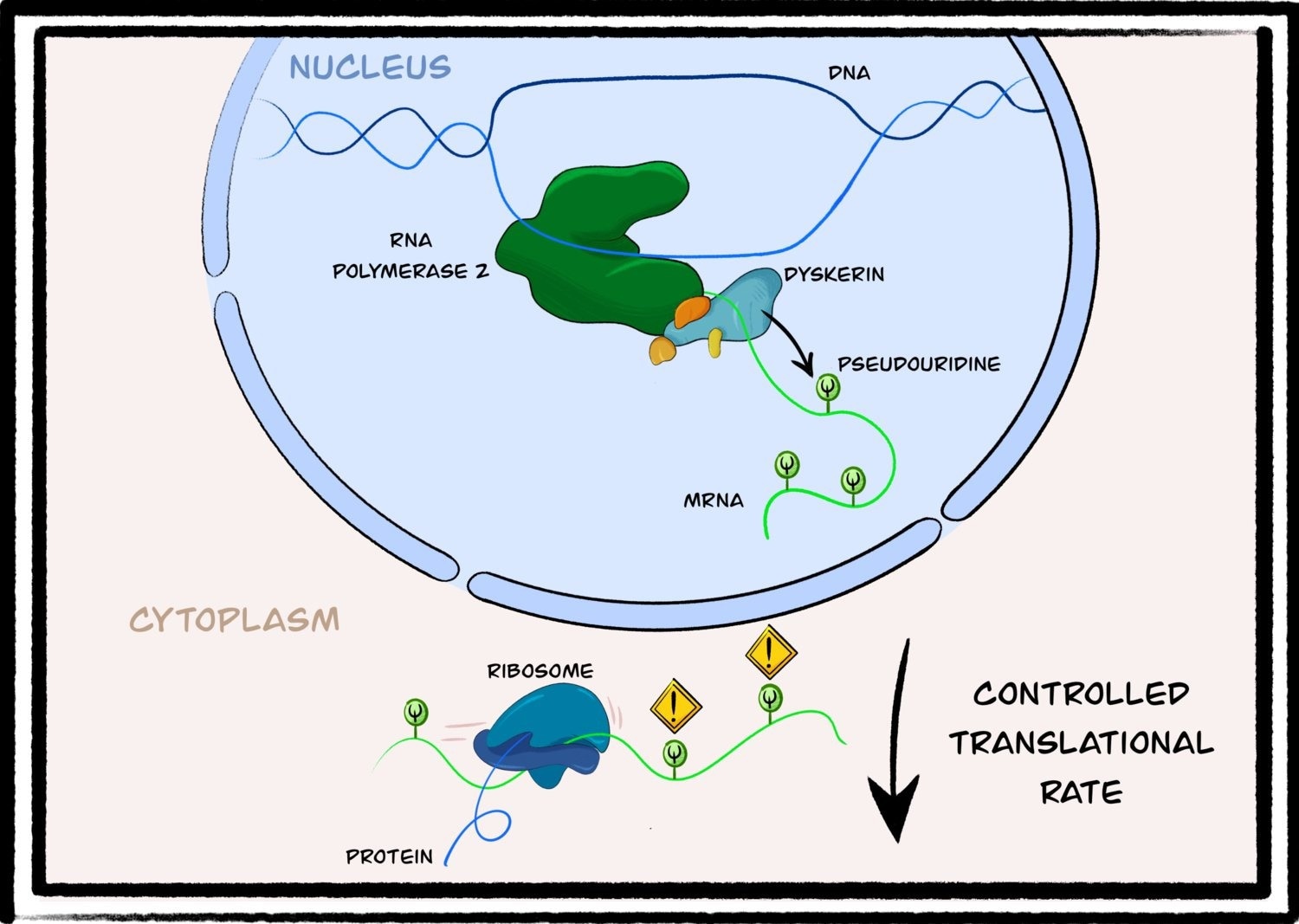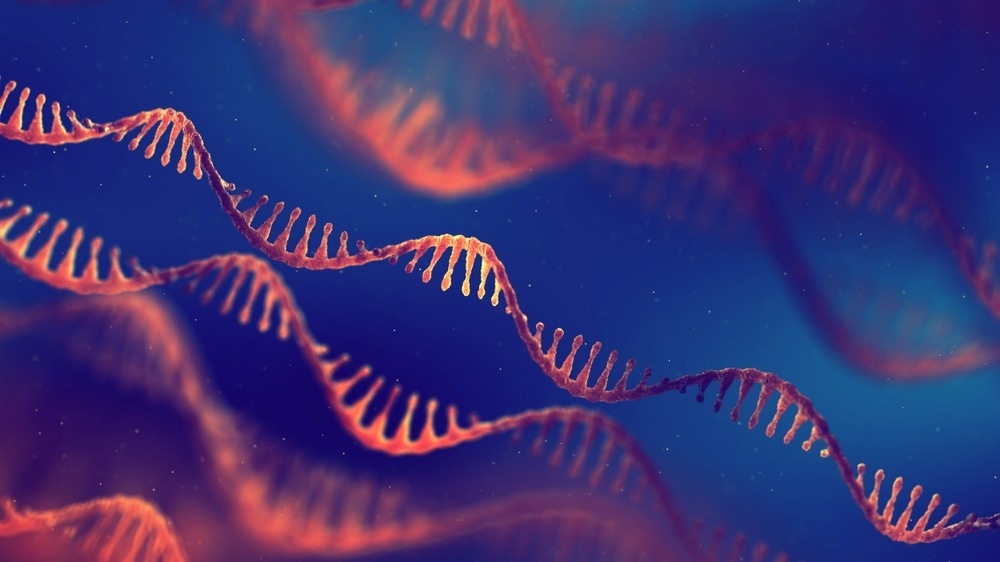Reviewed by Danielle Ellis, B.Sc.Aug 28 2023
RNA is essential for protein synthesis in the cell. According to a new study, RNA can be modified by numerous chemical modifications, the purpose of which is unknown to most people. Researchers from the Departments of Cell and Molecular Biology and Biosciences and Nutrition conducted the study, which was published in the scientific journal Science Advances.
 Illustration of mRNA pseudouridylation by dyskerin and its influence on protein synthesis. Image Credit: Karolinska Institutet
Illustration of mRNA pseudouridylation by dyskerin and its influence on protein synthesis. Image Credit: Karolinska Institutet
Our findings show that already from the production of an mRNA (during transcription), the cell can put on chemical modifications that can control how that mRNA is translated into protein.”
Chiara Pederiva, Study First Author and Postdoctoral Researcher, Department of Cell and Molecular Biology, Karolinska Institutet
Davide Trevisan, PhD student at the Department of Biosciences and Nutrition, Karolinska Institutet and the study’s shared first author, added, “Our findings reveal that an RNA modification called pseudouridylation controls how quickly mRNA is translated into protein. We show which enzyme performs this modification (dyskerin), when it occurs in the cell (already during transcription) and what happens if this modification does not occur (abnormal protein production). Finally, we have discovered that pseudouridylation of mRNA is lost in patients with dyskeratosis congenita, a disease associated with increased risk of cancer risk and premature aging and which is caused by mutations in the enzyme dyskerin.”
He further noted, “This opens the possibility that problems in RNA pseudouridylation contributes to development of this disease.”
This gives critical information regarding one of the cell’s most fundamental processes, protein production, and how the cell can regulate protein production in the cytoplasm beginning with mRNA transcription in the cell nucleus. The findings also point to a link to a hereditary condition.

Image Credit: nobeastsofierce/Shutterstock.com
The significance of RNA modifications in cellular activities and disease development is a new study area. These new discoveries advance understanding and could help in the creation of novel medicines.
High-throughput sequencing, cell biological, and biochemical methods were used to carry out the investigation.
We now want to investigate the scope of this mechanism in detail and use information to design new treatments against dyskeratosis congenita and cancer.”
Marianne Farnebo, Study Senior Author and Associate Professor, Department of Cell and Molecular Biology and the Department of Biosciences and Nutrition, Karolinska Institutet
Source:
Journal reference:
Pederiva, C., et al. (2023). Control of protein synthesis through mRNA pseudouridylation by dyskerin. Science Advances. doi.org/10.1126/sciadv.adg1805